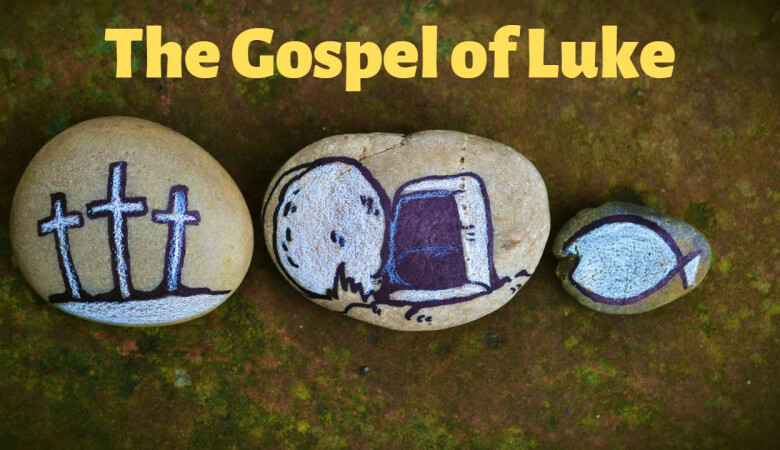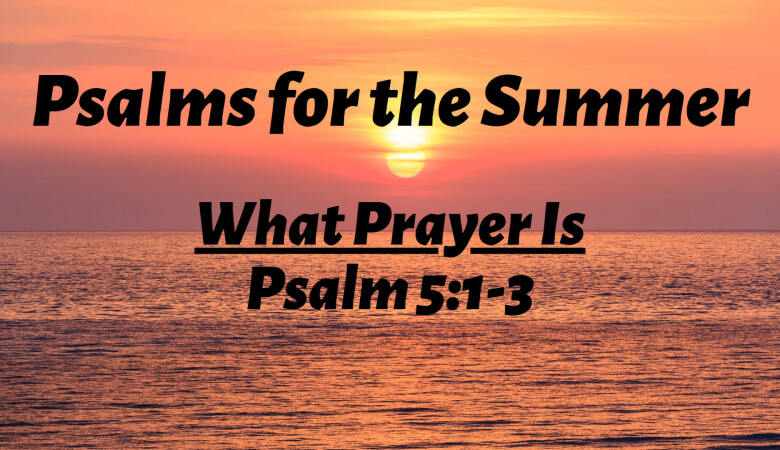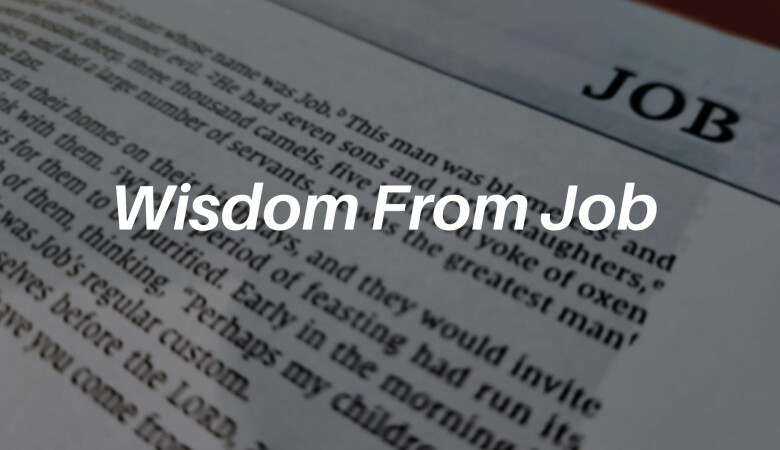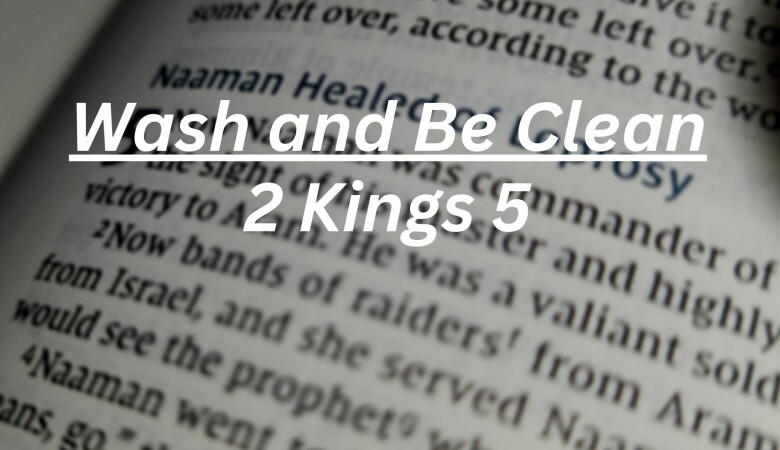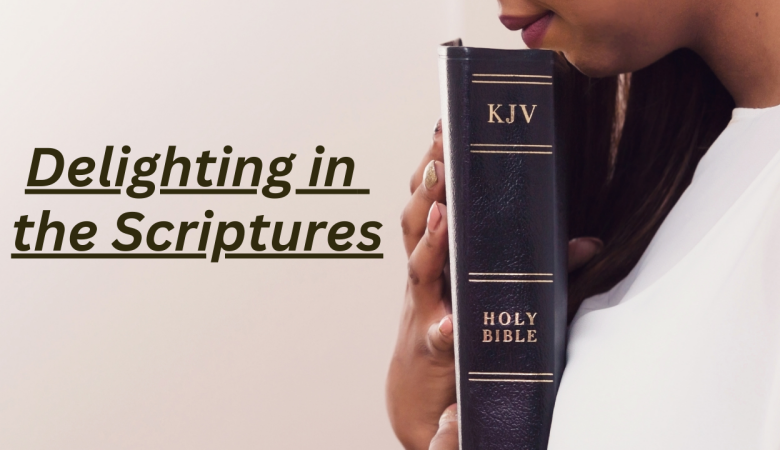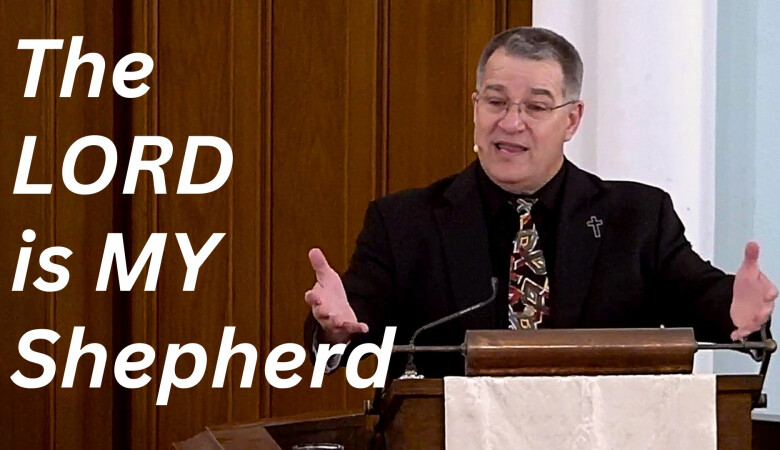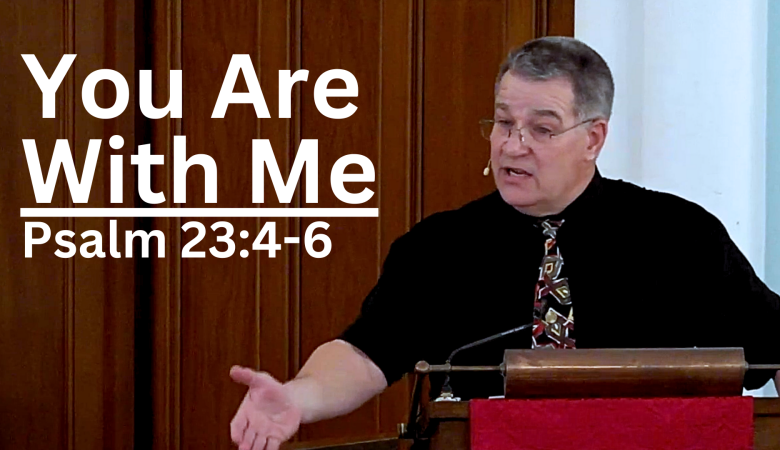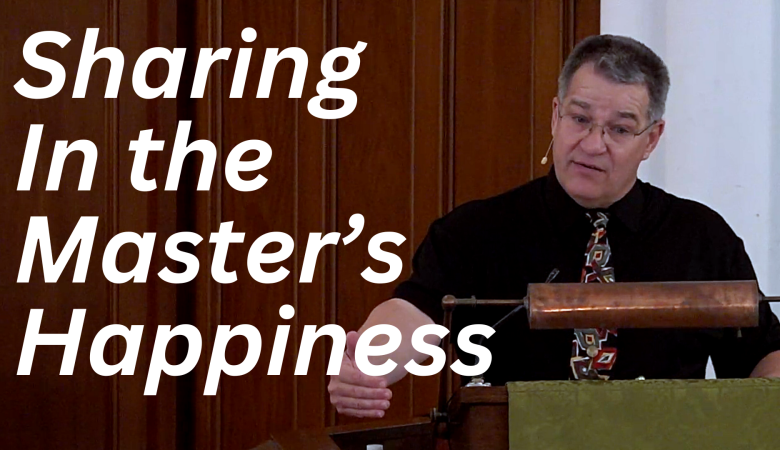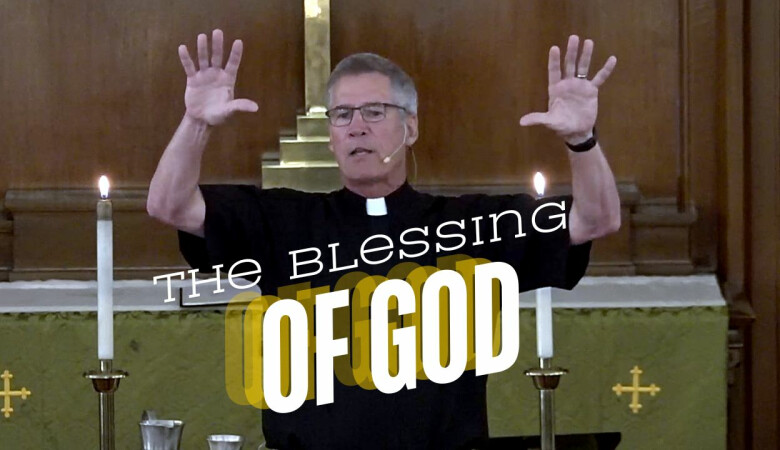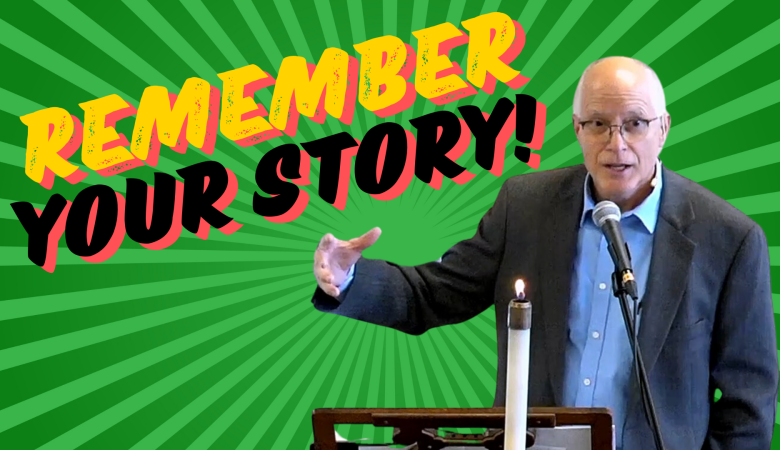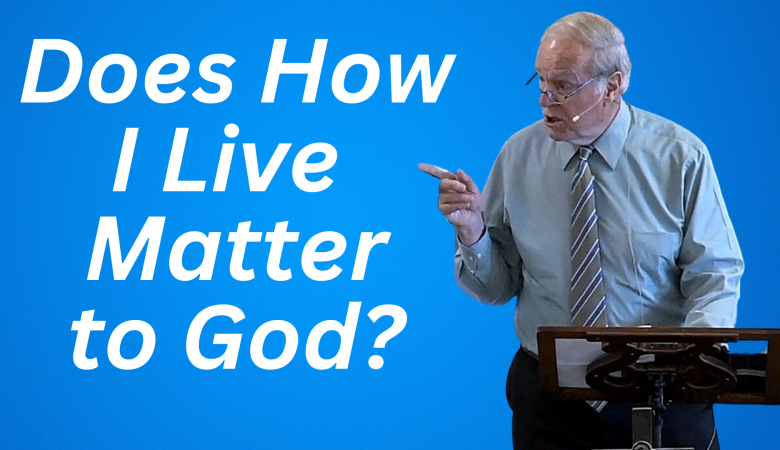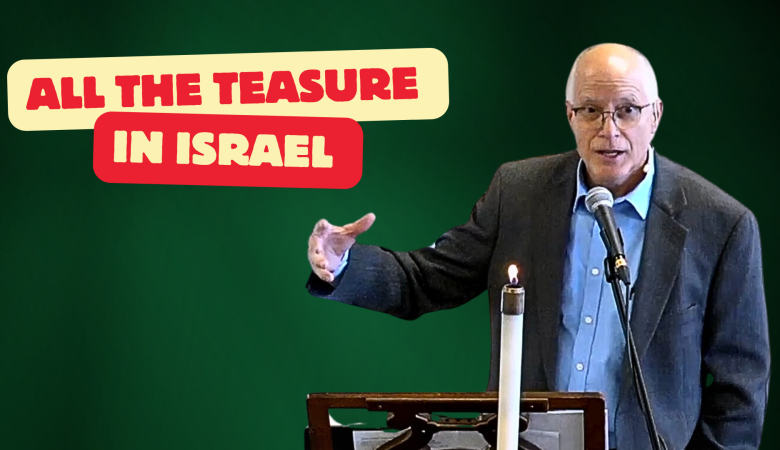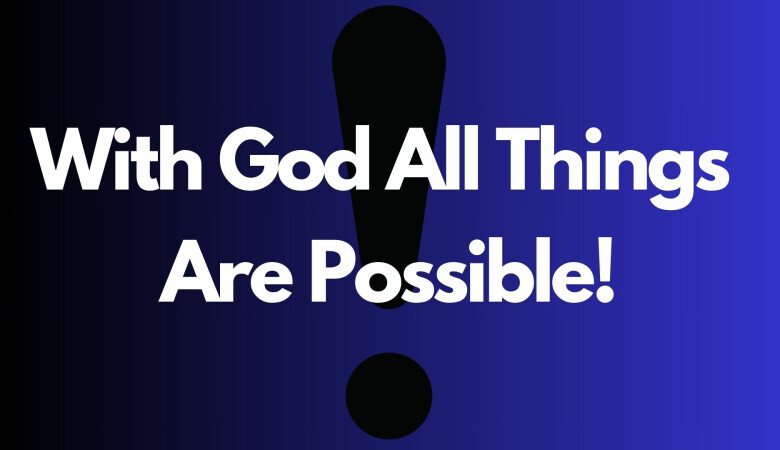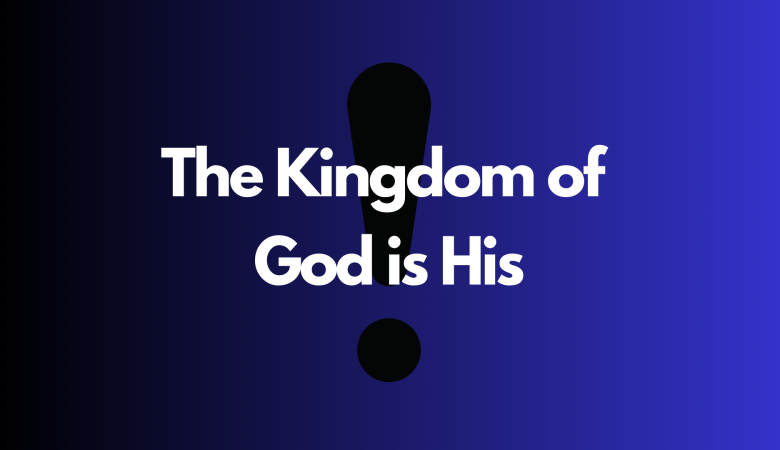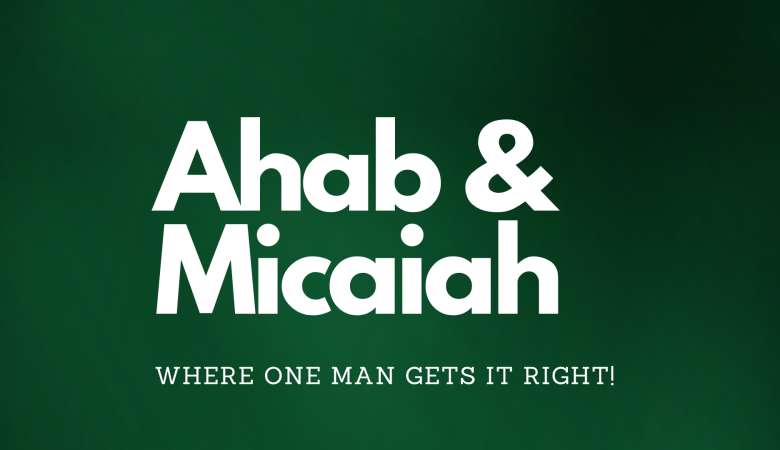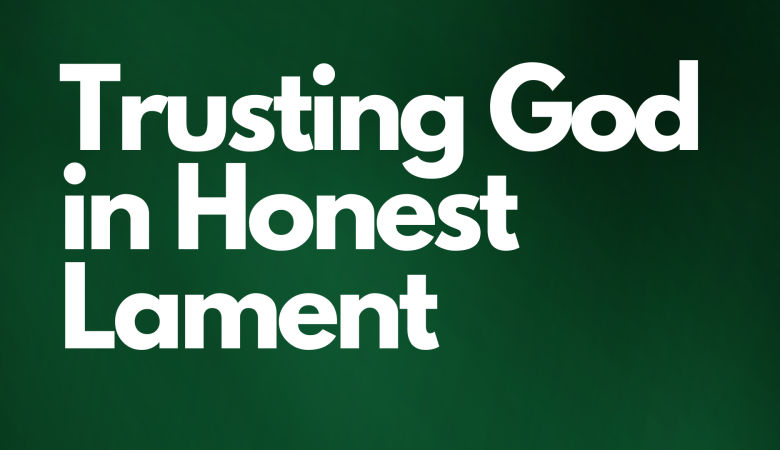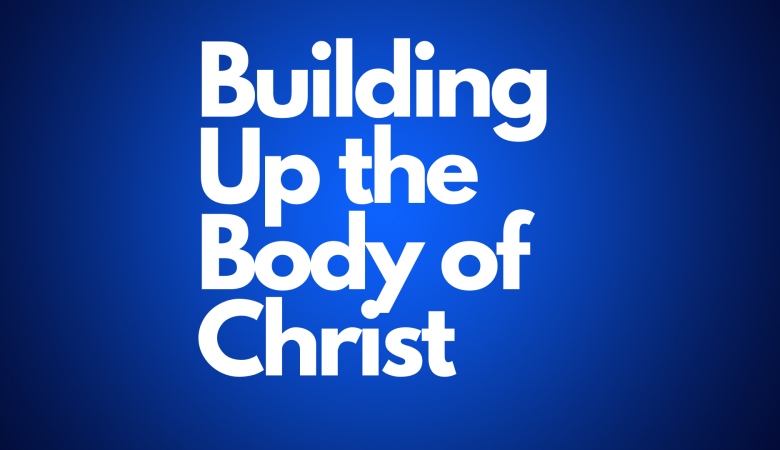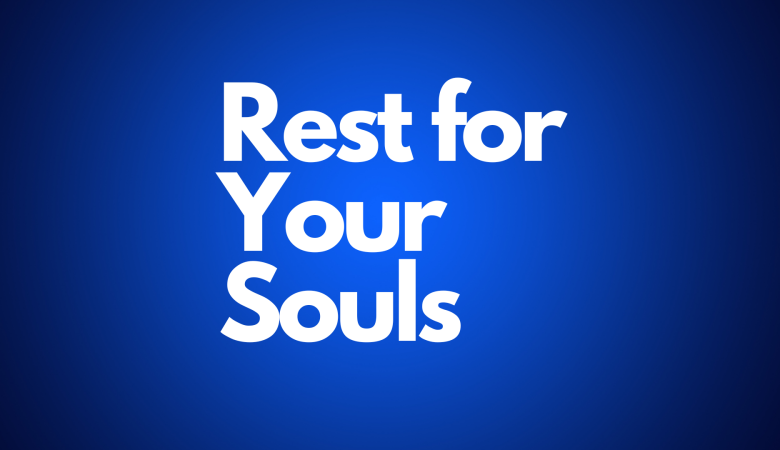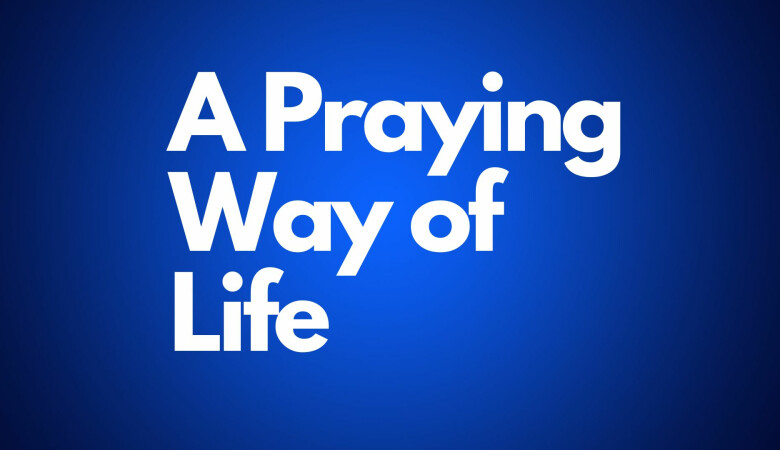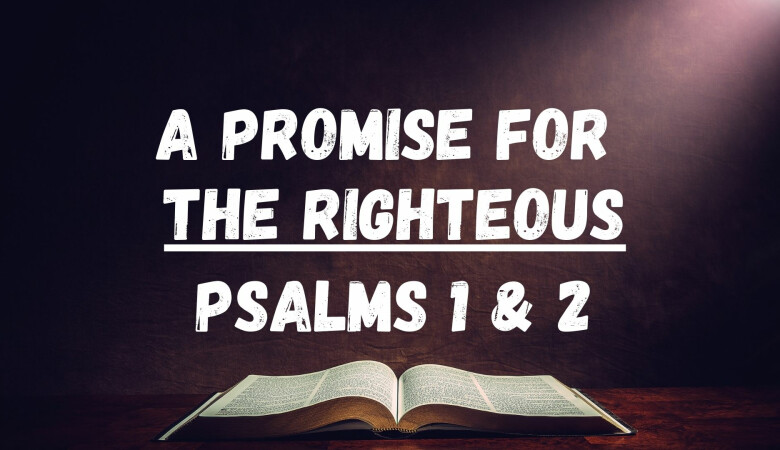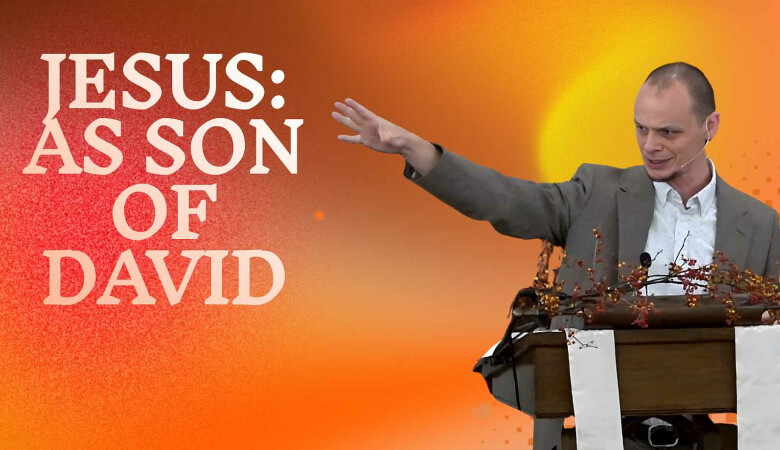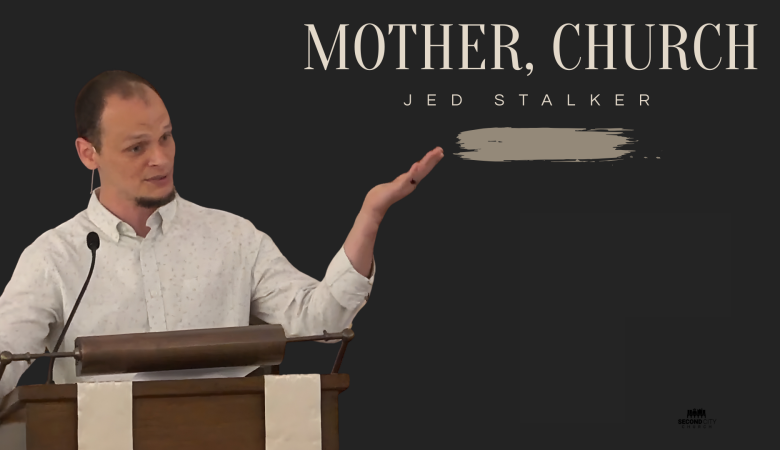Series: Guest Preachers
Be Still and Know That I Am God
August 25, 2024 | Andy Phillips
Passage: Psalms 46:1-11
ALL SERMONS IN SERIES
Summary
Psalm 46 is a call to be still and know God amidst the turmoil around us; mountains quake, seas roar, and nations rage. We are not good at being still, even in the quiet moments. Our tech-inundated world means unceasing noise. And so many of us are burdened by personal conflicts, internal turmoil, tensions, and anxieties within. Yet, it is in stillness that we ‘know’ God, which is the foundation of trust. We see the God who is with us in the storms, the God who often stills the storms, and who will one day bring stillness to all the world. The call for us, this side of the cross, is to be still and realize the love of Christ.
Transcript
We tend to not be very honest. But the beauty of a lament is it expressing our heart. It's a connection with God. I talked about Heather, who is one of our family friends. I remember she looked at me, and when I reminded her that God is with her and loves her, she looked at me and said, it sure doesn't feel that way. That's an honest lament. Do we ever speak to God like that? It's important that we do. An honest lament keeps us connected to God by going to God, expressing our heart, complaining, while we remain anchored in a notion of God's steadfast love, even if it's a, ah, reflecting on that steadfast love that we knew experienced in the past. But it's still that connection as we wait and hope for God to show, uh, up. The apostle Paul would call us to see the love of Christ prevailing amidst the mortal ills. So let's look at psalm 46, um, verses two and three. Uh, is expressed this way. Uh, the earth will give way and the mountains fall into the sea. And though its waters, uh, roar and foam and mountains quake with surging, those are the mortal ills. So the psalmist is expressing, hey, all this upheaval in creation, uh, waters roaring, mountains, um, quaking, the earth not being the sure stability. And, uh, then later on, he talks about nations raging, kingdoms shaking. You can't bank on kingdoms being there forever. Of course, that has no relevance to our life now. There's nothing in creation itself that would give us any right. Of course it does. Very relevant nations themselves. But the psalmist says, as he opens the psalm, he says, in this, we will not fear. How do you move forward among those mortal ills prevailing? How do you trust God amidst such challenges? How do you trust God such that you don't fear? And the psalm opens with these words, trust God as your very present help and refuge amidst the troubles. It sets the tone, sets the tone for God as your shelter, God as your confidence, God is your strength. And it's not in the present help to fix the troubles, but in the midst of those, we get so fixated on God, do this, do that, give me this, give me that. We miss the very foundation of what's going to uphold us in the midst of these challenges, and that's God himself, our, uh, prayers. The first corrective of this psalm is not focusing on the fix in itself, but about God being a present help. And I love the language. The language is a very present help. One of the ways that was translated in one of the commentaries was a vehemently present help. And I love that vehemently present help in trouble. And that refrain is repeated in verse, uh, seven and verse eleven. The Lord of hosts is with us. The lord of angelic armies, in other words, is with us. God of Jacob is our refuge. That's the focal point. That's what's emphasized in this psalm. Mortal ills are prevailing. There's all kinds of things coming at us and politics, let alone our own, uh, inner turmoil. But I love where the psalmist goes. In verse four, he makes this odd statement about the city of God and a river with streams flowing, this heavenly city with the emphasis of God's presence there. You read that, at least when I first read it, I went, what's this all about? And the focus there, of course, is on God's presence, perhaps pointing to Jerusalem, which is a very different sort of image than the reality itself. But I think the key is found in verse eight. Come and behold. Come and behold. And that language, the language of coming and beholding is meant to come, uh, and behold with a mental picture or perceive or contemplate. Uh, that language is often used for prophetic visions. I, uh, think Derek kidner, uh, mentions the best way to understand this is behold with your inner eye. So the psalmist is saying, listen, you've got to use something more than just the outer eye to find the refuge that is there to see God, if you will. It's got to be this inner eye. And he speaks that way as he speaks of war ceasing, uh, peace coming, and ultimately of God being exalted. So the question as I look at this is, how does that work? How do you use the inner eye? How do you see God amidst the trials, amidst those mortal ills? And verse ten tells us, be still and know that I am God. That's the how. That's the how. And it starts with being still. It starts with being. And that word is translated, it can be translated a number of different ways. Stop. Uh, be quiet, relax. I like this one. Let go. And for many of us, it's so hard for us to let go. Eugene Peterson, in his paraphrase, uh, of this verse, says, step out of traffic. That's great imagery. Or step away from the noise and know that I'm God. What's implied here is that stillness is an essential part of knowing God. We need to be quiet. We need to be still. We need to let go. We need, uh, to relax, step out of traffic, step out of the noise. And that's so very difficult to do in the midst of trouble, in the midst of angst, in the midst of trials. We're terrible at that. At least I am. And culturally, we're terrible about being still. Uh, there's this new thing you've probably heard about. It's called, uh, raw dogging. Anybody hear of that? You know what that is? So all these. It's this challenge, I guess, this little. Some sort of challenge that, uh, to ride on an airplane without reading anything or looking at your phone. And some folks take it to the ultimate level, don't do anything, just stare straight ahead. But it's certainly, if nothing else, it's an illustration of how little we're able to do that. And even if you're at all like me, even in the quiet moments, the stillness, what's happening up here, it is a whirted. A whir. I'll sit outside. It's very quiet in the mornings. And I'll start trying to be silent, reflecting a little bit.
And I'll look around and go, yeah, there's weeds growing over there. I really need to do something about that. And then I'll start, well, you know, there's weeds, but then there's things that I need to do at school. And it's just so hard to just be still and stop the noise inside your head. And yet that's what this calls us to do. And what's interesting is I've reflected on it, worry, and I've gotten better. But I'm one of those guys that I worry if I don't have something to worry about. And, uh, many of you can relate to that, I know, but worry is really the refusal to let go, uh, the refusal to recognize you are ultimately powerless to do anything. The refusal to trust that God has this. To trust God as your vehemently present help in trouble. I love that passage, uh, that, uh, Rebecca read for us in one kings about Elijah seeing God. And what's fascinating, the context is he has just come back from seeing God show up in a big way. The consuming fire, uh, where he defeats the prophets of Baal. And, uh, so this big show. But what's interesting is Elijah never covers his face when God shows up in those flaming fires. That big show. But he does cover his face when he shows up. And one of the ways to translate that is in the sound of sheer silence, in the stillness, in the small whisper. Frankly, I don't like that. I want God to show up in a big way because I need him to do stuff. But God reveals himself. Seems to me quite frequently in silence. We'll talk about some how tos later, but I want to look at the second part of, uh, that first phrase of 40, uh, 610. Know that I am goddesse. I used to think that what that meant was I needed to get my theology down, because if I had my theology down, then there'd be peace. But that word isn't about knowledge alone. That's essential. You got to know stuff, and we'll talk more about that later. But what that word implies and what that word is most often used, like it's used in, uh, proverbs three, five and six, is no by experience, no by seeing. So be still and know God by seeing. Wait a minute. It points back to the inner eye, the need to see God. The, uh, same word for knowing God is used in Genesis four one, where it's used euphemistically with the intimacy of Adam and Eve and their conception of their children. So it's a knowing by experience, by seeing. Uh, the writer Paul in Ephesians three uses a very similar New Testament word in verse 19, may you know, uh, the, uh, new living translation translates that, may you experience the love of Christ. Though it's too great to understand fully, the psalmist and Paul get a little bit mystical here. They're saying it's gotta be more than information. It's gotta be more than simply having good doctrine. It's got to be deeper than that. If it's just what you know, that is not going to uphold you in the storms, it's not going to uphold you in the prevailing trials of life. It's got to be deeper than that. We've got to use our inner eye to see the love of Christ, to see God's hand. You know, we sing, and it's great, and it's been called one of the most profound little children's sermons or songs. Uh, Jesus loves me, this I know, for the Bible tells me so, but it's got to go beyond that, and it really is. It's got to be for all of us at some point to recognize that Jesus loves us. This I know, uh, because the spirit tells me so. For God's spirit testifies with our spirit that we are children of God. Do you know that you're a child of God? Scriptures tell us that God loves sinners, and he identifies that it's for us, but it's the spirit that testifies with our spirit. We've got to see that with our inner eye. It's got to be deeper than just information about one of the reasons I love, um, Mark's account of Jesus quieting the storm is in so many ways it's a visual of what's going on in psalm 46. And many of the commentators will point us back there because Jesus big pronouncement, quiet and be still. A similar language to what's used in, uh, verse ten. But what's great about this is in so many ways, as I've thought through this, and inevitably I've needed this this week, I've needed this over the years. I've needed to reflect on this is what this account does for us is it points us to our focus. It reminds us of where we need to be anchored. Because in stillness God has experienced, he's realized, and in many ways he's revealed. You remember, Rebecca, read this and, uh, there's, uh, three of the four gospels, uh, give an account of this different language, different, uh, ways that they use. But a couple things about this is important. Uh, I think we often kind of minimize what's going on. You know, they were in a boat. It was stormy, um, but we're told the boat was in danger of being swamped. That is utterly terrifying. I, uh, remember, uh, rafting down the Chattooga river. It's right on the border of South Carolina and anyway, right on the border of South Carolina. And, uh, they had just horrible rain. So the river was raging and it was terrifying. Our raft never capsized. But I ran to a guy when we got back, uh, uh, to, uh, the place, uh, where we started, uh, and he apparently had, uh, experienced being washed over in that raft. And he claimed to me that he was a marine that had seen live action. And he said it was more terrifying for me to be caught in that storm, to be in that rage, to be totally helpless. And that's the intensity of what their fears. It's not just a little rain. The boat was in danger of being swamped. And what we see in this horrific goings on and people will quickly point out there are a bunch of fishermen on this boat and they were part of being terrified. So, you know, it was bad. And what does jesus do? He models stillness in the storm, doesn't he? In the ultimate degree. He's asleep on the back of the boat in the midst of the storm. Wouldn't that be awesome to be able to sleep through the night, let alone in a storm? I wake up in the middle of the night, my head's turning and it's just a light drizzle by comparison. But there is stillness and such assurance of his refuge in God, and obviously in a deep way, far beyond anything we could experience. But it's what it's like to really know goddess, not just information about, but know God, seeing God being God, in effect.
On the other hand, the disciples aren't real jazzed about Jesus stillness. And one of the gospel writers, I think it's Luke, records, uh, the disciples saying, don't you care? You're sleeping and we're all going to drown. The boat's in danger of being swamped. They didn't like the idea of the stillness of goddesse in his still, small voice, God as a sound of sheer silence, because that to us, just like the disciples, don't you care? Where are you? Why aren't you showing up? Why aren't you healing this disease? Why aren't you addressing this need? Why aren't you providing what we're looking for? And it really is absurd when the disciples go and it's easy to laugh at them. They're going, listen, don't you care that we're going to drown? Jesus is in the boat with them. He's going to drown, too, if they think it all the way through. And what did they really expect Jesus to do? Because they're utterly astounded when he actually does something and stills the storm. Jesus is in the boat with them. He is more vehemently present, if you will. God is more vehemently present than the psalmist was. And we scoff at them. But for us, this side of the cross, God is more vehemently present than he was as a person in a boat in a storm. The spirit of God is with us, is in us. It's closer to us than we are to ourselves. Jesus is closer to us than we are to ourselves. And I love Jesus response. I think it's Luke that records it this way. He asked this question, this pointed question to the disciples, where is your faith? Where is your trust? I don't know if his trust was in Jesus boating ability, trust in their ability to navigate the wind and the waves of where is your trust? Martin Luther in his famous hymn says, should we in our own strength confide, our striving would be losing. We're not the right man on our side. Jesus with us, Jesus with us, vehemently with us. Do you not yet know who I am? That's what Jesus is asking the disciples. That's what he's asking us. Do you not know what it means that I am with you, intimately with you? And he reveals himself by stilling the storm, ultimately fulfilling that last part of verse, uh, ten of psalm 46. I am exalted over nature, over the earth, over the turmoil. He rebukes the restless and turbulent world, inasmuch as he rebukes the disciples for their internal restlessness and turbulence, even rebuking us. And in that stillness. And I love the translations that catch it with words like the disciples, when it was still they feared exceedingly. Magos. Phobos, I think, is the greek, uh, transliteration, and you don't need to know Greek to know what that means. Phobos phobia megas mega. The emphasis of what they saw when God was fully revealed, ultimately in stillness and at the exaltation of Jesus, he'll be a comfort for us, the harassed, and also a rebuke to the restless and turbulent world.
So a couple things that have helped me as I've taken these pieces and tried to work through them over the last, um, particularly the last several weeks where I found it particularly challenging. And part of this is we can read psalm 46 one, God is my trust, a very present help in trouble we will not fear. But we keep reading in the psalms, do not fear when I'm afraid. Do not fear when I'm afraid. So it's not sort of we check this box and move on. It's this constant cycle of learning, of trusting, of resting, so that more and more that characterizes us, and more and more we're able to rest at a level of what we see in Jesus. I think the first thing we need to learn to see the presence of Jesus amidst the storm with our inner eye, uh, the picture of trust, the, uh, foundation of trust. Uh, Jesus shows us what that looks like. He's in the storm with us. The emphasis of psalm 46 is, God is with us. You are not alone. And yet we make so little effort to realize that. I'm not talking anything weird or freaky. I'm just talking about realizing that. Go. Oh, yes, God is with me. It takes me so long to get there. At least. At least we need to make some sort of effort to realize the reality of that. If you profess faith in Jesus Christ and it's just information about, you'll never be upheld in the storm. It's got to go deeper. You've got to use that inner eye. And if you say nothing else about the boys in the boat, Jesus disciples, at least they went to Jesus. They went to Jesus. And, um, still, I'd love to know what they were thinking he would do, but they went to him, and I don't know. You know, I'm a professional religious person for over 30 years, 40 years. Yowsa. I'm old, but I'm professional. I do this for a living. And yet it takes me so long to go, oh, yeah, I ought to go to Jesus. I ought to go to Jesus. They went to Jesus. We know he cares. His silence is delays. To act the way we want could mean perhaps a lot of things. But one thing we know it does not mean. It does not mean what the disciples thought it mean. It does not mean that God doesn't care. It does not mean that Jesus doesn't care. It can't possibly mean that the cross screams to us that God cares. Cares enough to put on flesh, cares enough to suffer far beyond anything we could ever endure. Any prevailing mortal ill, we can endure precisely because we know he cares. The disciples had an excuse. They didn't see the cross. They certainly, if they saw the cross at all, it was nothing but bad news. We know the cross screams a ah, level of care far beyond anything else. But it doesn't take away the lament. I love Heather's lament. I mentioned it before, and this is what lament is. It sure doesn't feel that way. God, I know you love me. I know you're with me, but it sure doesn't feel that way. Hear my cry, hear my anger. Come to me. Give me eyes to see, ears to hear. We need to learn to wait for God to show up. I've talked about this a lot. You all are probably going to conclude I'm psychotic and probably close, but I have these moments. I had them last week up at 03:00 just spinning, just spinning my head. I'm thinking, okay, we don't have the substitute teacher. We've got to get this done. There's so much. Jesse and Angelina, Chris are overworking. What are we going to do? And spinning, and spinning said, God, help. Check that box. I got there, and then I'm waiting. Still anxious, still turmoil. Come on, God, come on. And what I realized is, I'm fine to petition, but God better respond on my timetable. And what I found interesting is that it didn't happen at 03:00 a.m. sometimes it has. Sometimes God has really given me this peace, but it didn't have. But later on in the morning, I was up. I went, oh, this incredible sense of well being, this sense of internal shalom. Wow. I guess God did show up. Not the way I think he should, but apparently the way he did. We go to Jesus, we wait. That's what hope and waiting and trusting is about. Waiting and knowing that God's going to show up. He is going to be our, uh, very vehemently present help and trouble.
And then I love the question that Jesus asked the disciples, and this is a question that I've used to back on myself that I think we all need to use when the prevailing ills overwhelm, when the angst builds, ask the question that Jesus asked the disciples. Where is your trust? Where is your trust? What am I looking to for security, for making sure everything's going to be okay, particularly in the midst of the storms. And trust, not that the storm's going to be still, because sometimes they are, but a lot of times they're not. But no, he's with you. He has you. And if your trust is in him, and oftentimes it's this shift. Oh, yeah, yeah, that's where it was. That's where it was. It was in the bank account balance. Yeah, yeah, yeah. I've got to move it here. Oh, that's what it was. It was in finding six more staff. That's what it was. My trust was in that. My trust was anchor in that. And there's no security, no comfort in that. But there is in God showing up. He is showing up. He is giving shalom, that inner shalom. When the storm continues to rage, when the mortal ills continue to prevail. Martin Luther, again, were the right man. Uh, not on our side. The man of God's own choosing. Dost ask who that may be? Christ Jesus. It is he, Lord Sabaoth. His name that means Lord of hosts. From age to age, the same. And here's the line. He and he must win the battle. Not me. He must win the battle. And that's all part of that letting go, that trusting letting go. We don't like that battle language, but that's the language of the song. He must win the battle. Jesus must win the battle of angsteh anxious thoughts that wage war against rest, against sleep. He must win the battle. Jesus must win the battle of hurt and internal pain that has you tempted to fight the battle yourself and seek vengeance. Jesus must win the battle. In finding funds, in addressing bank account needs, and sustaining an overworked, underpaid staff, Jesus must win the battle. In addressing our needs, Jesus must win the battle against those prevailing mortal ills. Be still. Be still. Can you. Can you sit in utter silence for just five minutes and with your inner eye see God, see that he has you? It's hard particularly in our world. So be still and see God win the battle of comfort for the harassed and the rebuke of the restless and turbulent world, and to realize that's going to be fully and finally addressed at his return. So I pray for myself, for all of us, with Paul's prayer. And may you have power to understand, as all God's people should, how wide, how long, how high, and how deep is his love. May you have power to understand. Get it? Do you understand the depth of the love of God? And may you experience the love of Christ through your inner eye as you see the cross, as you reflect on it, though it's too great for us to fully understand, then you will be made complete and with all the fullness of life and power that comes from God our father, that is our prayer.
There is so much that comes at us in this world. We are overwhelmed. We are often filled with angst, and we too readily forget you are with us, you love us, you have us in your hand. You are vehemently present with us amidst the mortal ills, even as they prevail. And might you enable us to find comfort, might you enable us to trust you so that we know that though you don't respond on our timetable, that we might know that you'll come to us. For your great love is abundantly evidenced to us in the cross. Your suffering, your death, your resurrection, the great promise. You will be with us always to the end of the age, and you're with us at a level that far exceeds anything the disciples could imagine. And so be our comfort, be our real present help so that we don't fear in the midst of trial. And as we struggle to move down the road towards that, we ask that we will remain anchored in the love of Christ that faithfully holds us and will never let us go. We would ask this in Jesus name. Amen. I.
Transcript
Series Information
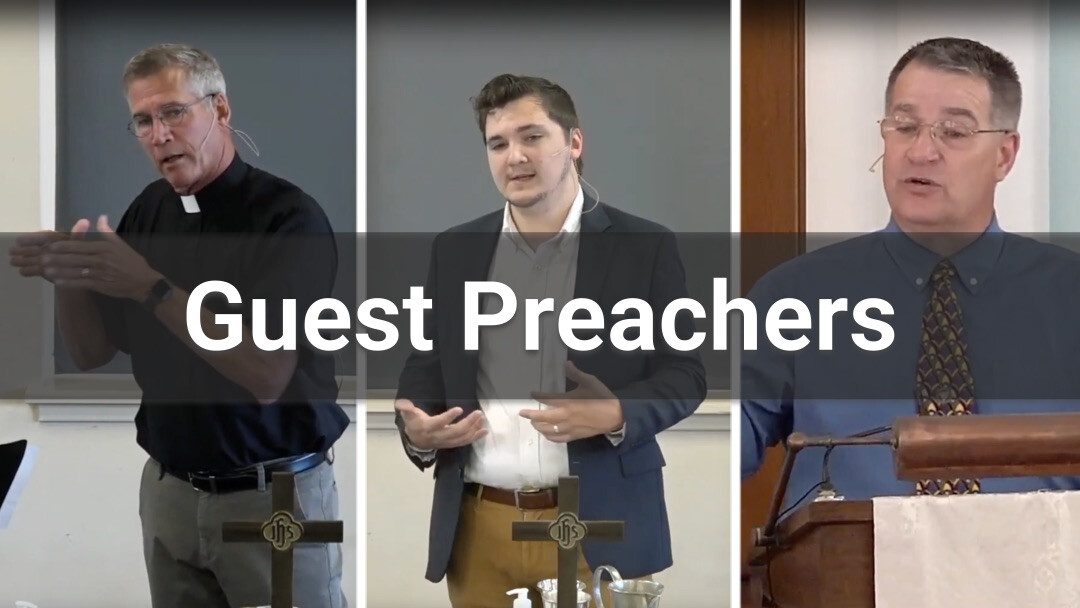
When Pastor Peter is away Second City Church is blessed to hear other men God has gifted to preach.

